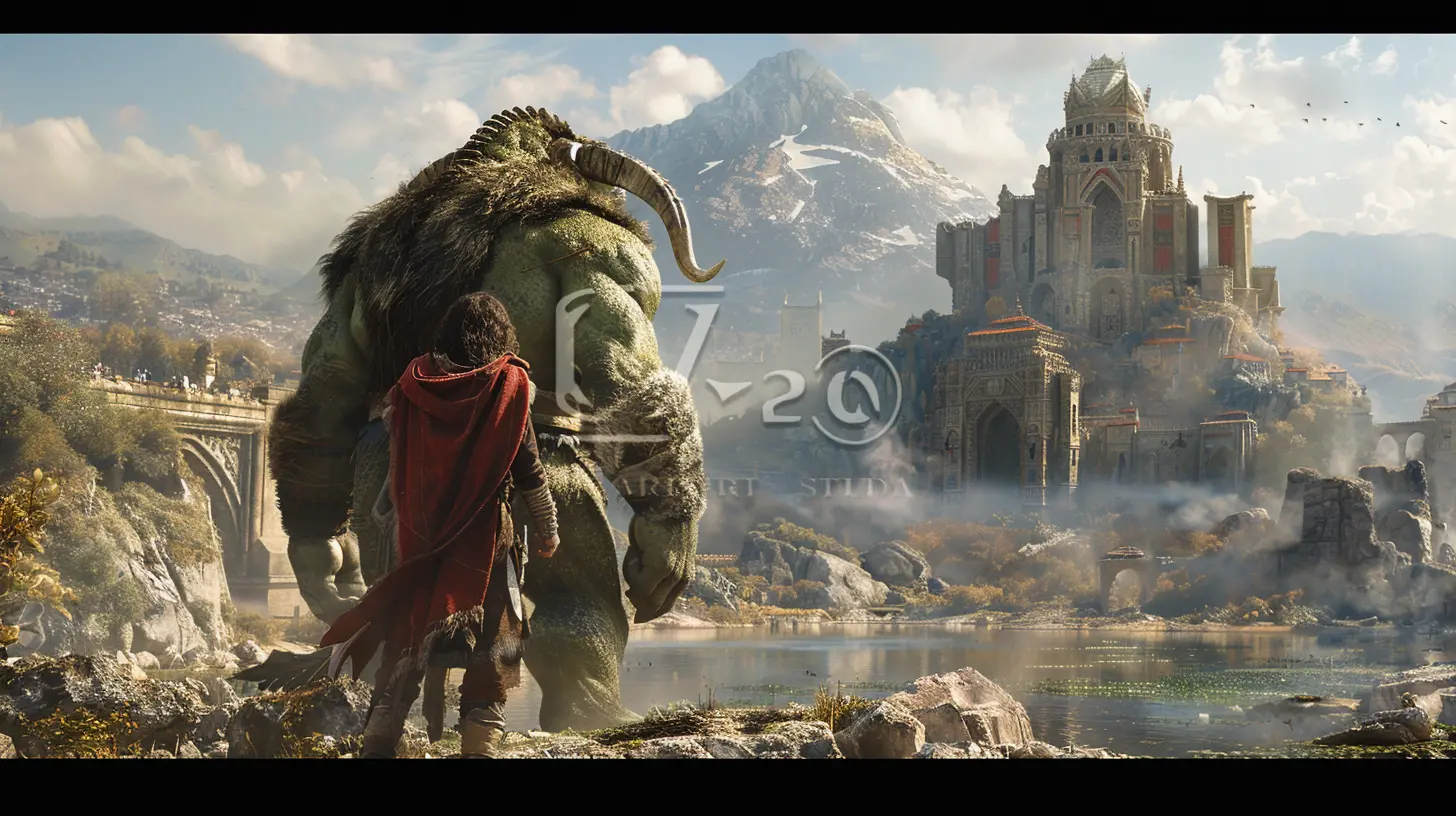A Look at Pre-Order Controversies and What Developers Are Changing
15 September 2025
Let’s be real—if you’re a gamer, chances are you’ve pre-ordered a game at some point. Maybe it was the hype, the exclusive content, or just the sheer need to play it on day one with zero FOMO. But lately, that "day-one excitement" has come with a side of disappointment. Bugs, performance issues, unfinished content... sound familiar?
Pre-ordering, once a no-brainer for diehard fans, has become a hotbed of controversy. And developers? Well, they're finally being forced to pay attention. So, what went wrong with pre-orders? Why is the community so fired up? And more importantly—what’s changing in the industry to fix this broken system?
Let’s break it all down.
The Rise (and Fall) of Game Pre-Orders
Years ago, pre-ordering a game made a lot of sense. You walked into your local GameStop, slapped five bucks on the counter, and ensured you’d get a copy on release day. Cool, right?Back then, digital downloads weren’t a thing. Physical copies could sell out. Pre-ordering was safe, even smart.
But fast forward to today—when games are released digitally and supply is endless—and the whole idea of pre-ordering starts to feel... outdated. Yet developers and publishers still push hard for them. Why?
Because money talks.
Why Pre-Orders Matter (For Developers, Not Always You)
Here’s the deal: pre-orders help developers and publishers gauge demand, build hype, and—most importantly—secure early revenue. Selling millions of copies before the game even hits the shelves? That’s a dream come true for companies trying to fund marketing campaigns or please investors.But therein lies the problem.
When the money rolls in before the reviews? The incentive to release a polished, fully functional game takes a back seat. It’s risky—for us, the players.
The Fallout of Failed Pre-Orders
Let’s talk about the elephant in the room. You probably already know where this is going...🧨 Cyberpunk 2077
This was the most anticipated game of the decade. Years of teasers, trailers, and breathtaking promises. But when it launched? Oh boy.Glitches. Frame rate issues. Game-breaking bugs. It was a mess—especially on last-gen consoles. The backlash was so severe, CD Projekt Red was forced to offer refunds and got pulled from the PlayStation Store. That’s not just a controversy—it’s a PR disaster.
And guess what? Millions of those copies were pre-ordered. The hype train had left the station long before anyone actually played the game.
😓 No Man’s Sky
When No Man’s Sky dropped back in 2016, it was missing so many promised features that fans were furious. The game eventually redeemed itself—props to Hello Games for sticking with it—but the initial launch was a textbook example of why pre-ordering can burn you.
Why Gamers Are Losing Trust
Gamers aren't a passive crowd. We’re vocal. We stream. We post. We review. And we don’t forget easily.Every botched launch chips away at trust. Every broken promise makes us think twice before hitting that “pre-order” button again.
Pre-ordering has turned from a joyful anticipation into a cautious gamble. And can we blame anyone? The pattern is hard to ignore:
- Overhyped trailers
- Misleading gameplay reveals
- Cut content
- Day-one patches the size of the game itself
- Pre-order bonuses locked behind paywalls
It just feels... manipulative.
The Problem with Pre-Order Bonuses
Get this sword skin! Exclusive armor! A pet cat that follows you in-game!Sound cool? Sure. But pre-order bonuses often create a weird divide between players. Some get content others never will—even if they buy the game later. And that sucks.
It’s especially frustrating when these bonuses are tied to gameplay perks, not just cosmetics. It’s a way to strong-arm players into pre-ordering before knowing if the game’s even good.
Imagine buying a car before test-driving it—just because the guy at the dealership promises you a free air freshener. Sounds dumb when you put it like that, huh?
How Developers Are Responding (Finally)
Okay, so here’s the good news: change is happening. Slowly but surely, developers are taking the heat seriously.✅ More Transparency
Many studios have started to open up. They share development updates, host Q&A sessions, and give fans regular insight into progress. No more mysterious black boxes.Studios like Larian (of Baldur’s Gate 3 fame) have embraced early access and transparency. It builds trust and creates a real dialogue with players.
🔁 Early Access Over Pre-Orders
Instead of paying full price blind, gamers can now choose to support development in early access. Sure, it's not perfect. But at least you get to play the game as it evolves and provide feedback that genuinely shapes the final product.This model isn’t just more honest—it’s way more fun.
🧪 Open Betas and Game Trials
More studios are offering open betas or timed demos before release. And it’s a win-win. Players get a taste of the game, and developers gather valuable data to fix bugs and balance gameplay.You remember Call of Duty’s open beta weekends? They're practically a tradition now—and they give players confidence about what they’re buying into.
📉 Dialing Down the Hype Machine
Believe it or not, some devs are deliberately toning down marketing until the game is truly ready. Nintendo’s been lowkey with some recent releases—and those games often launch in excellent condition with few surprises (looking at you, Tears of the Kingdom).Less smoke and mirrors. More substance.
The Role of Gaming Communities
This shift wouldn’t be happening without pressure from us—the players. Online forums, YouTube critics, Twitch streamers, Reddit threads, and review bombers (even when a bit extreme) all send a clear message: We’re watching.Developers now understand that a bad launch isn’t just a bump in the road—it can tank their reputation for years. And that's all thanks to a community that’s done taking Ls.
So, Should You Still Pre-Order?
Let’s be honest—we’re all tempted. That collector’s edition? That exclusive beta access? That sweet steelbook case?But here’s a little advice from one gamer to another: pre-orders should be earned, not expected.
Ask yourself:
- Has the studio delivered quality before?
- Have you seen raw gameplay footage?
- Are reviews or previews available?
- Is the bonus worth the risk?
If not, maybe it's better to wait. Patience is power—and often, it saves you from disappointment.
What the Future Looks Like 🎮
Gaming is growing up. Players are more informed, the industry is more transparent, and the shady pre-order tactics of the past? They’re being called out.We’re heading toward a future where quality speaks louder than hype, where games are judged by how they play—not how they’re marketed. And pre-orders? They may never fully disappear, but they'll need to evolve.
Studios that respect players will win. The ones who don’t? Well, they’ll keep trending—for all the wrong reasons.
Final Thoughts: Keep Your Wallet Skeptical
The excitement of a new game is real—we’ve all felt it. But let’s not let that buzz cloud our judgment. Pre-orders can still be a fun way to support developers you trust, but they should never be blind faith.We’re in an era where gamers demand better. And finally, developers are starting to listen.
So next time you're tempted to pre-order, take a breath. Read the fine print. Watch the gameplay. Then decide if it’s truly worth it.
Because you deserve a game that’s not just hyped—but finished, polished, and absolutely worth your time.
all images in this post were generated using AI tools
Category:
Pre OrdersAuthor:

Tina Fisher
Discussion
rate this article
1 comments
Ardyn Carr
In the shadows of hype, trust wavers and bright futures glimmer—developers mend hearts, crafting dreams anew.
September 18, 2025 at 3:26 PM

Tina Fisher
Thank you for your thoughtful comment! It captures the delicate balance between hype and trust in the gaming industry.


